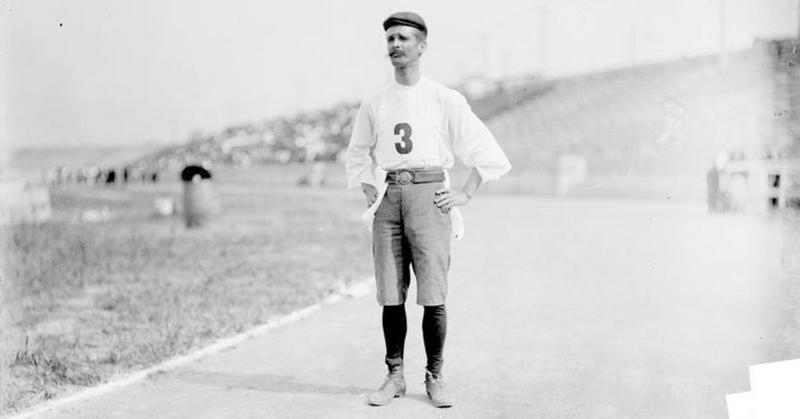1904: The Worst Olympics Ever
By | July 25, 2021

Not every Olympics is a hit, but the 1904 Olympic Games in St. Louis, Missouri really won the gold when it came to the worst games ever. To be fair, the Olympics as we know them today were brand new, as the International Olympic Committee (I.O.C.) wasn't established until 1896, and the 1904 games were only the third held since the end of the ancient Olympics in the fourth century. Still, the hilarious catastrophe of the sporting event seems like it could have been pretty easily avoided with basic planning and some plain old common sense.
Off To A Bad Start
Originally, the 1904 games were to be held in Chicago, but organizers of the World's Fair in St. Louis worried the sporting event would steal attendance from their exhibitions. The World's Fair was a significantly more popular attraction at the time, but insecurity got the best of the Gateway to the West, and soon enough, St. Louis decided to host its own sporting championship, the Amateur Athletics Union, to lure sports enthusiasts away from Chicago. The I.O.C. threw in the towel pretty quickly and just gave St. Louis the Olympics for fear of no one showing up. A meager 12 countries even bothered to send athletes to the event, so the vast majority of competitors were from the United States or Canada, and the audience was likewise lacking. The competitions drew on for a staggering five months due to location and organization failures.

Running On Empty
Still, nothing was quite as ridiculous as what happened during the much-anticipated field and track marathon. In an astoundingly baffling move, chief organizer James Sullivan decided this was the time to test out the effects of "purposeful dehydration" on the body for, uh, science? This meant water was banned from the race, leaving the runners without much hope of traversing the nearly 25 miles laid out through the dusty plains and rolling hills of Missouri, especially in the brutal 90-degree heat.
But that was just the beginning of the woe that soon befell the runners of the 1904 Olympic Marathon. Only 14 out of 32 even finished, as most gave out from exhaustion. John Jordan, the winner of the Boston Marathon, didn't even make it one mile before vomiting and collapsing to the ground. William Garcia was found on mile 19, coughing up blood due to esophageal and stomach damage from all the dust on the unpaved rural roads. He nearly died on the way to the hospital. Even those who managed to finish the race didn't do so without drama. Tswana runners Len Taunyane and Jan Mashiani, the first African Olympic competitors ever, placed ninth and twelfth respectively, but Taunyane was aggressively chased by a stray dog for well over a mile.
Felix Carvajal was perhaps the favorite to win, well known at the time for running the entire length of Cuba, but fell prey to the vices of the Big Easy upon landing in the United States and lost all of his money in the gambling houses of New Orleans. He managed to hike or hitch the 600 miles to St. Louis but lost all of his belongings and had to run the marathon wearing his wholly inadequate street clothes, complete with a beret. He showed up just before the race started and, having eaten little on his journey, began begging people in the race and passing cars for food. He eventually stole some peaches and apples from an orchard, but the swift intake gave him a stomach cramp, and he had to lie down for a nap in the middle of the race. Amazingly, he still finished and came in fourth place.

Winner Takes It All?
The first man to cross the finish line was Fred Lorz, who had just won the Boston Marathon the year before, but it turned out he only ran a measly nine miles before quitting and taking a car most of the rest of the way. Apparently, he thought it would be a good "joke" to pretend he won because that's as seriously as people took the Olympics back then. He gave up the scheme pretty quickly and admitted he'd cheated.
The real winner of the race was Thomas Hicks, who had to be assisted across the finish line because his trainer's genius plan to get around the "no water" rule was feeding the athlete a concoction made of egg whites, brandy, and strychnine (y'know, that stuff we put in rat poison). He was apparently hallucinating for most of the last leg of the marathon and collapsed just after crossing the finish line, but hey, Olympic gold is Olympic gold.
So badly did the St. Louis games taint the reputation of the Olympics that they actually held a do-over in 1906 at the original location of Athens, Greece. Luckily, the 1908 London games were a success, and thus began the true legacy of the highly respected and extremely competitive Olympic Games we know and love today.

